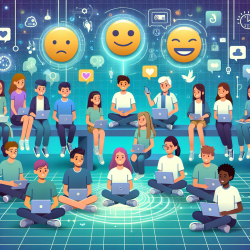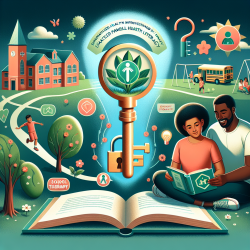Unlocking Potential: The Power of IEP Meetings
As school counselors, your role in shaping the future of our children is indispensable. One of the most crucial elements of this journey is the Individualized Education Program (IEP) meeting. This collaborative process is not just a statutory requirement; it's an opportunity to unlock the potential of each child. At TinyEYE, we believe in harnessing the power of data-driven decisions to transform these meetings into success stories.
The Heart of IEP: Collaboration and Customization
IEP meetings are a cornerstone of special education, where educators, therapists, and families come together to create tailored educational plans. These meetings are a platform to ensure that each child's unique needs are met. By focusing on collaboration and customization, we can craft strategies that are both effective and inspiring.
Data-Driven Decisions: The Backbone of Effective IEPs
At TinyEYE, our approach to IEP meetings is rooted in data-driven decisions. By utilizing evidence-based practices and real-time data, we can provide insights that drive meaningful outcomes. Here are some key elements to consider:
- Assessment Data: Leverage comprehensive assessment data to identify strengths and areas of need. This data serves as a foundation for setting realistic and measurable goals.
- Progress Monitoring: Regular monitoring of progress helps in adjusting strategies as needed. This ensures that interventions are effective and aligned with the child's evolving needs.
- Technology Integration: Incorporate online therapy services to enhance accessibility and flexibility. This approach not only supports speech therapy staffing but also provides consistent support to children, regardless of location.
Empowering School Counselors: Your Role in the IEP Process
As a school counselor, you are pivotal in guiding the IEP process. Your insights and expertise are invaluable in shaping educational strategies that are both inclusive and effective. Here are some ways you can make a significant impact:
- Facilitating Communication: Act as a bridge between educators, therapists, and families to ensure seamless communication and collaboration.
- Advocating for Resources: Champion the need for adequate resources, including speech therapy staffing, to support the diverse needs of students.
- Fostering a Supportive Environment: Create an environment where every stakeholder feels valued and heard. This fosters trust and encourages open dialogue.
Conclusion: Turning Challenges into Opportunities
IEP meetings are more than just procedural gatherings; they are opportunities to make a profound difference in a child's educational journey. By embracing data-driven decisions and fostering collaboration, we can turn challenges into opportunities for growth and success. At TinyEYE, we are committed to supporting school counselors in this mission, providing the tools and resources needed to create great outcomes for children.










